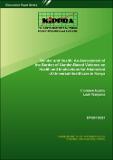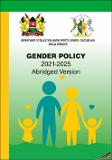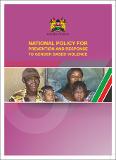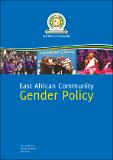| dc.description.abstract | Gender-based violence (GBV) is defined as a harmful act directed at an individual
on the basis of gender. In Kenya, a report by the National Gender Equality
Commission indicates that approximately 39 per cent of women and girls aged
15 years and above have experienced physical violence. Further, NGEC estimated
productivity losses to be Ksh 25 billion for serious injuries, Ksh 8 billion for minor
injuries, which is approximately 1.1 per cent of Gross Domestic Product (GDP).
Productivity losses are a burden on GDP, and are likely to slow down attainment
of universal healthcare. This paper is a review of literature whose general
objective is to investigate costs associated with GBV and its impact on GDP.
The specific objectives are to: (a) assess the magnitude of GBV; (b) identify the
drivers of GBV; (c) document the burden of GBV on healthcare and productivity;
and (d) discuss implications for the attainment of universal healthcare in Kenya.
The review is guided by a hypothesis that reduction of cost burden of GBV is
a strategy for attainment of universal healthcare. The reviewed articles were
identified from books, peer reviewed journals, reports, policy documents and
websites of agencies and organizations. The data was analysed using the funnel
approach - global, regional and national. Results showed an increase in GBV
at the individual, household and community levels. Further, in 2016, NGEC
calculated cost of GBV as Ksh 46.5 billion, which translated to 0.6 per cent of Ksh
7.470 trillion GDP for Kenya. The results also indicated other costs incurred by
individuals and families that are difficult to quantify and factor into the GDP.
The recommendations include intensifying research on: (a) magnitude; (b) types
and forms; (c) drivers; and (d) impact of GBV on healthcare and productivity | en |




